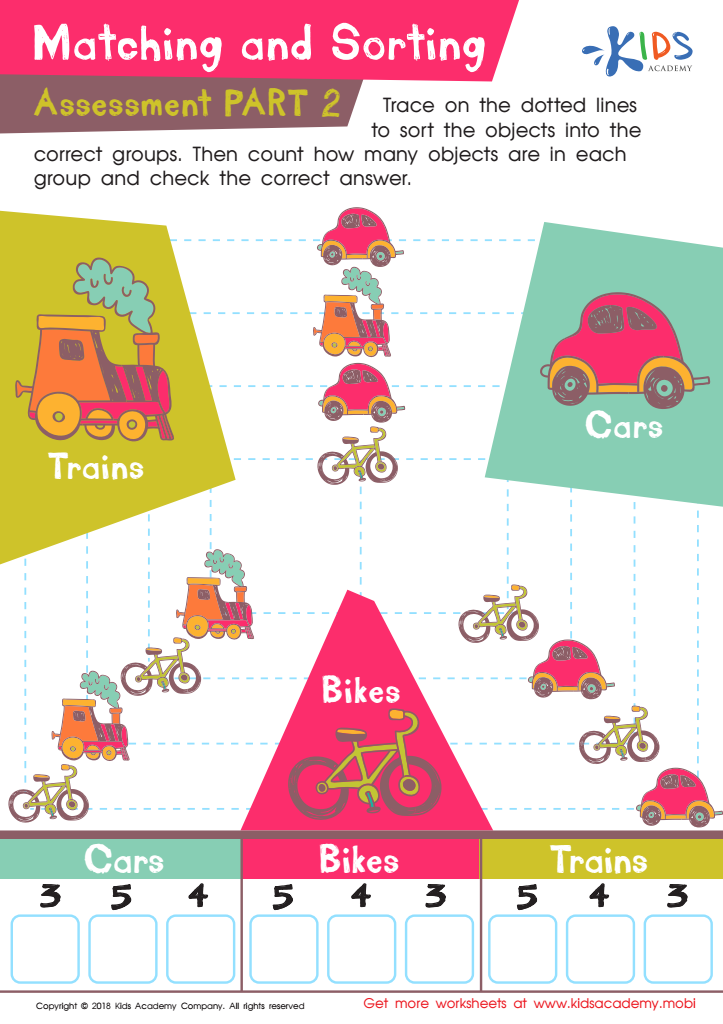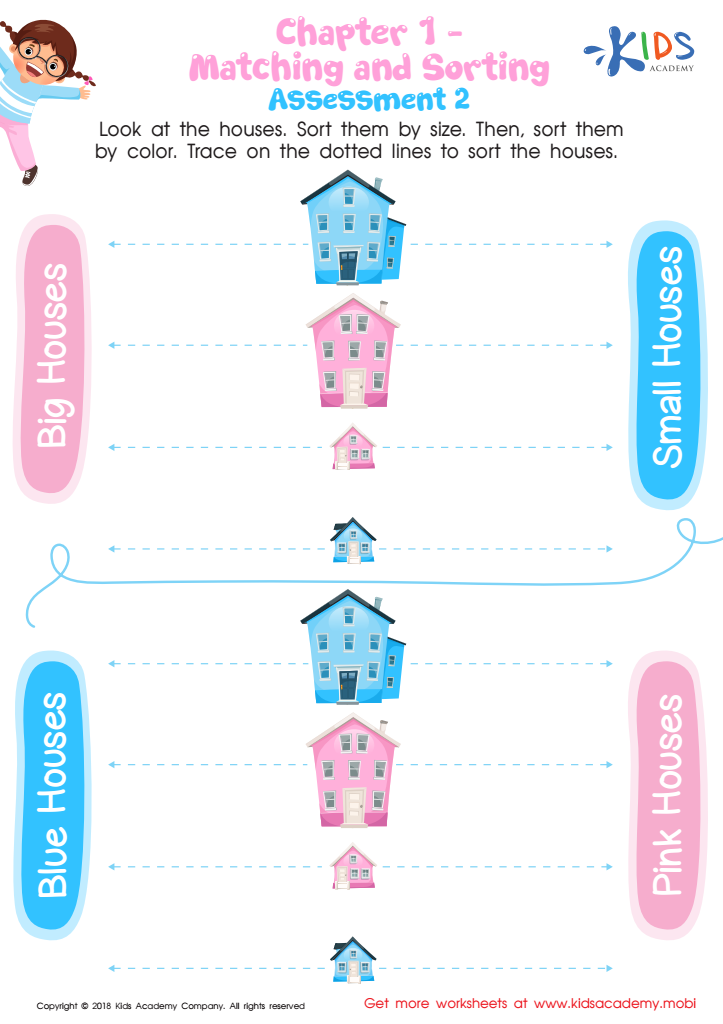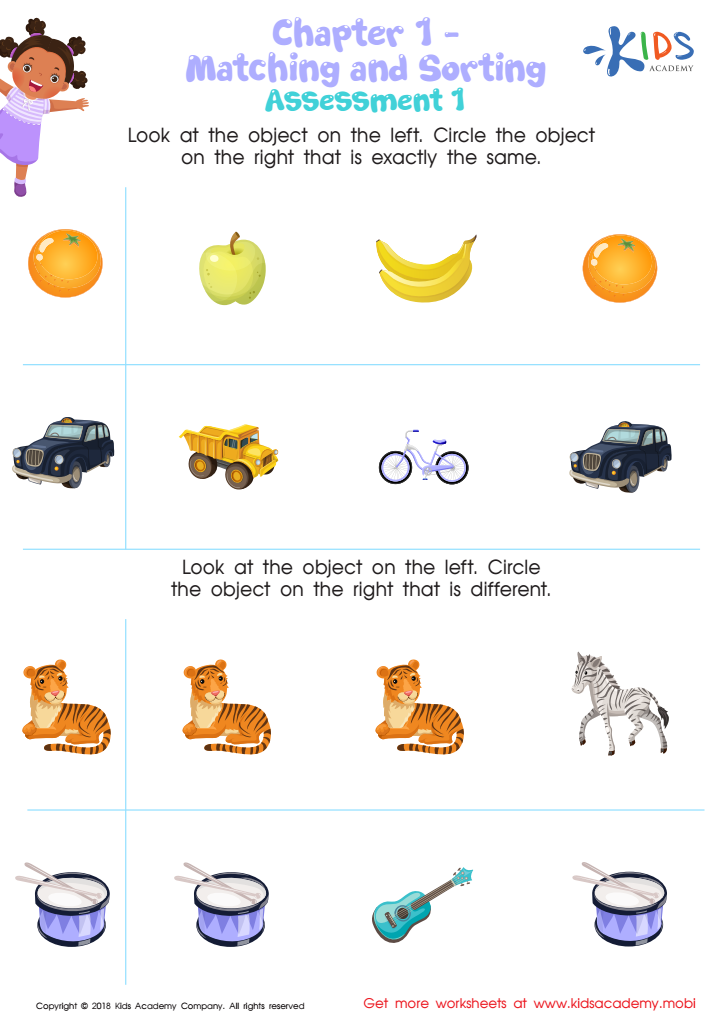Comparing Fractions Sorting Worksheets for Ages 5-7
3 filtered results
-
From - To
Discover engaging "Comparing Fractions Sorting Worksheets" designed specifically for children aged 5-7! These interactive activities help young learners grasp the concept of fractions through hands-on sorting tasks. By comparing different fractions, students develop critical thinking and problem-solving skills while building a solid foundation in math. Each worksheet is tailored to varying levels of difficulty, ensuring every child's needs are met. With colorful visuals and fun tasks, these worksheets not only make learning enjoyable but also boost confidence in math. Perfect for home or classroom use, our resources will inspire a love for learning in your little mathematicians! Explore math with excitement today!


Matching and Sorting for Kindergarten: Assessment 2 Worksheet


Matching and Sorting for Preschool: Assessment 2 Worksheet


Matching and Sorting for Preschool: Assessment 1 Worksheet
Comparing fractions is a fundamental math skill that lays the groundwork for more advanced mathematical concepts. For children aged 5-7, engaging in comparing fractions sorting helps develop critical thinking and problem-solving skills. This activity not only enhances their understanding of fractions but also strengthens their ability to organize information and recognize relationships between different quantities.
Parents and teachers should care about this because early mastery of comparing fractions can build confidence and a positive attitude towards math. When children grasp this concept early on, they are better prepared for more complex topics in later grades, reducing anxiety and improving overall performance in mathematics.
Moreover, comparing fractions sorting activities are interactive and fun, making math enjoyable for young learners. These activities promote collaboration and communication among peers, fostering social skills as children discuss their reasoning and strategies.
By incorporating comparing fractions sorting into educational practices, parents and teachers can provide a strong mathematical foundation, encourage teamwork, and stimulate a lifelong interest in learning. Investing time in these activities is crucial for developing both cognitive skills and a positive mindset towards mathematics at an early age.

 Assign to My Students
Assign to My Students
















